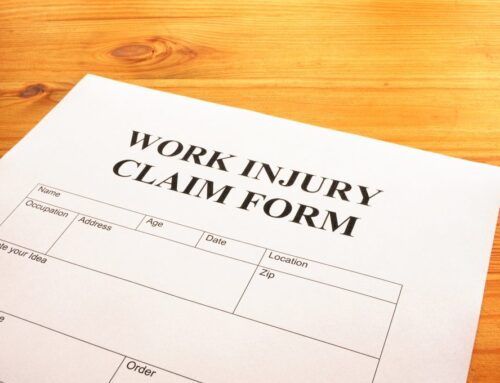By Tanya Phillips
If you are unable to work due to an illness or injury, you are entitled to State Temporary Disability Benefits. The main requirement is that you are employed by an eligible New Jersey company. To secure benefits you must complete an application which can be found here. Your doctor and employer must complete portions of your application.
You can receive State temporary disability benefits for up to six months. Your weekly benefits are two thirds (66 2/3%) of your gross average weekly wage. There is maximum amount you can receive per week. If your disability began after January 1, 2015 the maximum weekly amount is $604.
Your claim for disability should be filed within thirty days of the start date of your disability. If you file after the thirty days, you need to show good cause as to why it was not timely filed.
You cannot file your claim before you stop working. Sometimes, people schedule surgery and want to file the claim before they stop working so they do not have to wait for the benefits to be processed after they receive their last paycheck. Unfortunately, you are unable to file a claim until after the disability begins.
Please note two exceptions to receiving State Temporary Disability Benefits:
- If you are injured on the job, you should secure your benefits through your employer’s workers’ compensation carrier. Workers’ compensation temporary benefits are 70% of your average gross weekly wage with a maximum weekly benefit of $855 in 2015.
- Some companies have their own private short-term disability policies and do not pay into the State system. Your employer must provide you with this information and you will need to fill out a similar application for the private disability carrier.
If your disability is expected to last for at least a year, you may want to consider applying for Social Security Disability benefits. You may qualify for benefits if you have worked long enough and paid into Social Security which usually is about ten years. After confirming your eligibility for benefits you must prove that you are disabled by Social Security standards. Social Security considers you to be disabled if:
- You cannot perform the work that you did before;
- They decide that you cannot adjust to other work because of your medical condition(s); and
- Your disability has lasted or is expected to last for at least one year or to result in death.
You can submit an application for Social Security Disability benefits online here or by scheduling an appointment at your local Social Security office.
When determining whether you are disabled Social Security looks at many factors in addition to your health condition based on your age, education and experience level. Your condition must be severe enough to interfere with basic work-related activities.
Social Security maintains a list of disabling medical conditions. If your condition is not contained on the list, Social Security will compare the severity of your condition to those contained on their list. If Social Security finds that your condition is not as severe as those contained on their list, they will then examine whether you can perform the work you did before your alleged disability. If they determine that you are able to do your past job(s), your application will be denied.
If Social Security determines that you are not able to perform your past work, they will analyze whether you are able to do any other type of work. If Social Security determines that you are unable to adjust to another type of work, then they will find you disabled. If, however, they find based on your age, education and experience you will be able to perform some other type of work with your health condition, they will deny your claim.
If Social Security determines that you are disabled, there is a five-month waiting period before your benefits begin. This means they begin paying your benefits on the sixth month after they find you disabled. For example, if Social Security finds that you became disabled in March of 2014, then you would be eligible for benefits in September of 2014. You would actually receive your first payment in October of 2014 because Social Security benefits are paid following the month in which they are due.
If Social Security denies your claim, you can appeal by filing a Request for Reconsideration within sixty days. This is the first appeal and Social Security will review your claim once more. If they agree with their initial decision and deny your claim again, then you will have another opportunity to appeal by filing a Request for a Hearing before an Administrative Law Judge.
This can be an overwhelming process especially when you are dealing with significant health issues. These are the types of claims that my firm handles on a daily basis. If you have any questions regarding your Social Security Disability claim, please feel free to contact us.
If you have any questions as a result of this article or some other legal concerns I encourage you to visit our website at www.gaylordpopp.com, or email me directly at tphillips@gaylordpopp.com or call 609-362-6193. I answer questions like this every single day.


